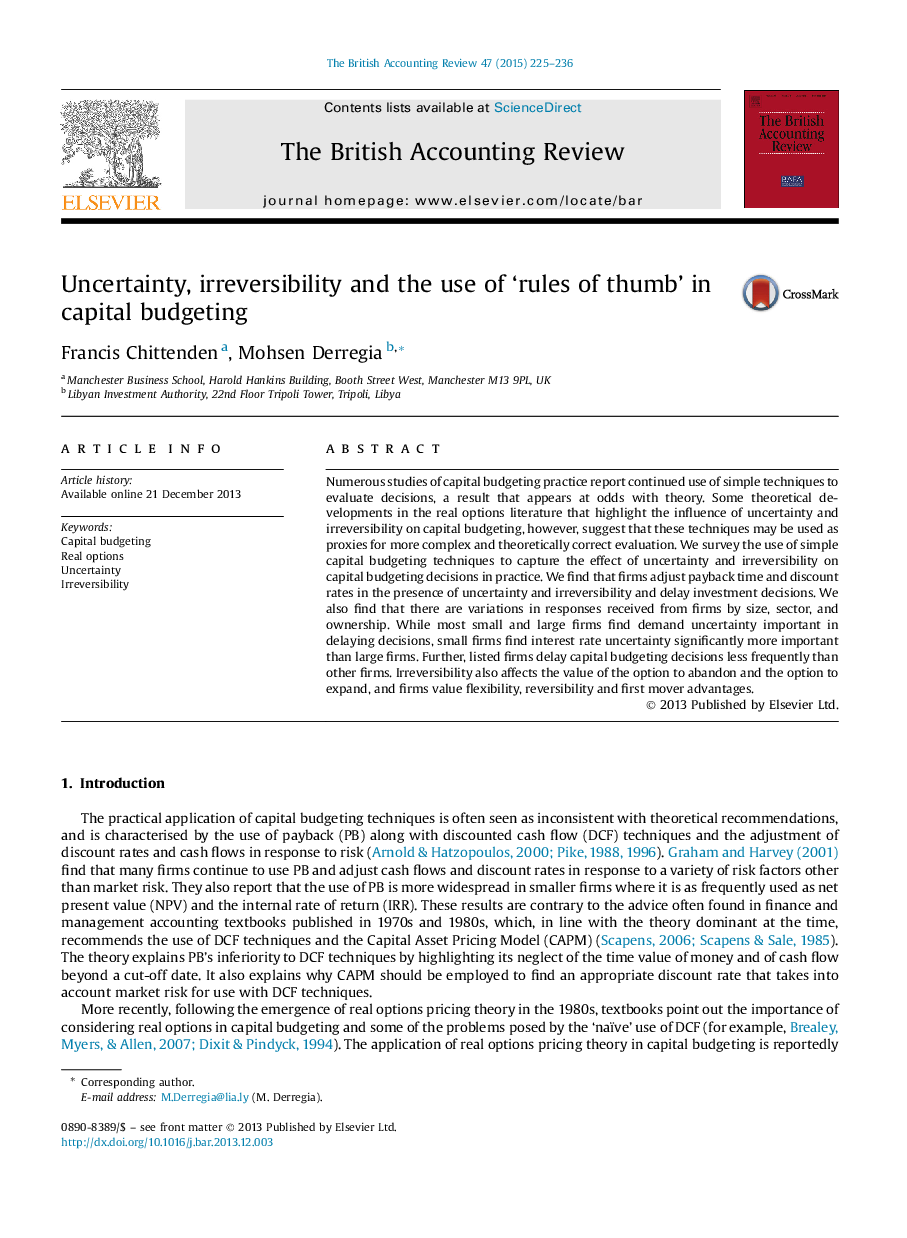| Article ID | Journal | Published Year | Pages | File Type |
|---|---|---|---|---|
| 1003942 | The British Accounting Review | 2015 | 12 Pages |
Numerous studies of capital budgeting practice report continued use of simple techniques to evaluate decisions, a result that appears at odds with theory. Some theoretical developments in the real options literature that highlight the influence of uncertainty and irreversibility on capital budgeting, however, suggest that these techniques may be used as proxies for more complex and theoretically correct evaluation. We survey the use of simple capital budgeting techniques to capture the effect of uncertainty and irreversibility on capital budgeting decisions in practice. We find that firms adjust payback time and discount rates in the presence of uncertainty and irreversibility and delay investment decisions. We also find that there are variations in responses received from firms by size, sector, and ownership. While most small and large firms find demand uncertainty important in delaying decisions, small firms find interest rate uncertainty significantly more important than large firms. Further, listed firms delay capital budgeting decisions less frequently than other firms. Irreversibility also affects the value of the option to abandon and the option to expand, and firms value flexibility, reversibility and first mover advantages.
